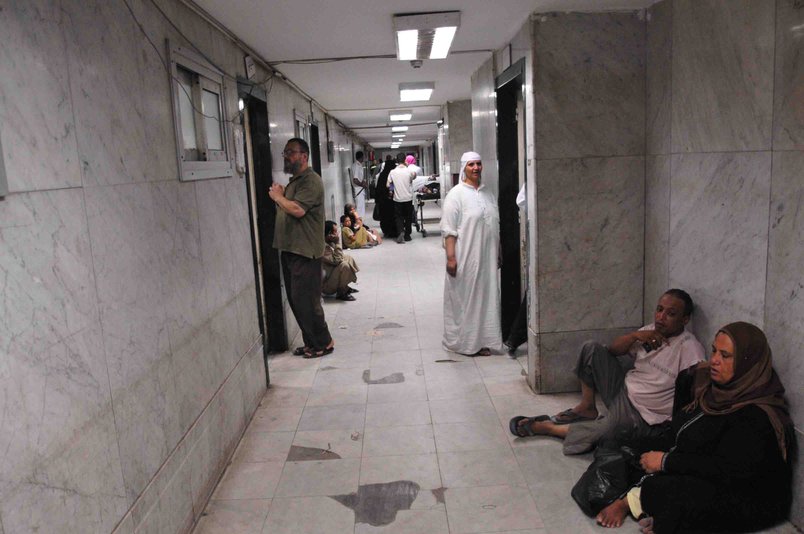During a meeting with members of the parliament’s Health Committee, Minister of Health Ahmed Emad addressed a wide range of issues that emerged recently in the health sector, state-run Al-Ahram reported.
Among those issues were the declining services inside public hospitals and medical centres, the recent cabinet decision of raising medicine prices, medical personnel’s rights, subsidised milk for infants, and the national institution of mandatory training for doctors.
The Ministry of Health approved the decision to increase medicine prices on 17 May, after receiving many complaints from medicine manufacturers and the disappearance of some of their products from the market as a result of the losses.
Emad said on Sunday that some pharmacists have tried to abide by the limit of the increase which was set at EGP 6. He also added that prices of about 75 medicines, which exceed EGP 100, will be reduced in the upcoming period.
Egyptian hospitals suffer shortage of beds inside public hospitals, ailing medical equipment and lack of medical staff in remote areas. The administrative prosecution called on the cabinet on Saturday to immediately interfere in advancing the healthcare capacity in public and educational hospitals to ensure adequate medical service is provided for all citizens, according to the Constitution.
According to Emad, there is a plan to revamp hospitals in all Egyptian cities or build alternatives for them, a process that will be also monitored by the parliament members.
However, there are several challenges lying ahead of this plan. Emad said during the meeting that the current budget for the health sector is incommensurate to the challenges it faces.
“I rejected the 2016/2017 budget for the health sector several times. I demanded EGP 53bn for the sector without health insurance, but I received EGP 48m including health insurance,” he said.
This deficiency has taken its toll on the medical service providers as well. In a tinge of irony, he said doctors are underpaid, even less than domestic workers. This has resulted in a shortage of medical staff especially in medical centres located in Upper Egypt, Emad concluded.


